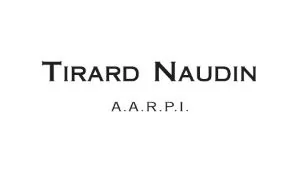Interest in the advance pricing agreement (APA) procedure has increased gradually since its introduction in 1999 by way of a mere statement of practice. By the end of 2004 more than 30 applications had been filed. The French tax authorities, which are encouraging APAs to be conducted, are expecting an annual average of 20 applications.
Legitimization of APA procedure
The APA procedure was introduced by way of an administrative instruction which provided only for bilateral APAs.1 This instruction was based on the mutual agreement procedure clause of the double tax treaties, which provides for the competent tax authorities of the two contracting states to agree on measures to eliminate double taxation - in accordance with Article 25 of the Organization for Economic Cooperation and Development (OECD) Model Convention. In France, unlike in most other OECD member countries, the authorization to agree on an APA was therefore not based on internal legislation. In formal terms, French APAs could only be agreements between the French tax authorities and the tax authorities of another jurisdiction which were accepted by the applicant company.
The Finance Amendment Bill 2005 strengthened the legitimacy of French APAs by inserting a formally legislated APA procedure into the scope of Article L 80B of the Tax Procedure Code.
Introduction of Unilateral APAs
In addition to the fact that the APA procedure will be given a stronger legal basis, unilateral APAs taking the form of an agreement between the French authorities and the applicant company will be granted. Unilateral APAs give a guarantee only to the company involved that the French tax authorities will not challenge the agreed method of calculating transfer prices.
In a recent instruction,2 the situations in which a unilateral APA may be entered into were listed and restricted to the following circumstances:
- where there is no APA procedure in the country concerned. Bilateral agreements should therefore be used when transactions are carried out with companies located in jurisdictions having an equivalent procedure (members of the OECD such as the United States, the United Kingdom, the Netherlands, Japan, Switzerland, Germany, Spain, Canada and Denmark, or non-OECD members such as Argentina, Brazil and Russia);
- transactions involving a large number of countries (eg, a French production company with numerous retail subsidiaries in different jurisdictions);
- transactions giving rise to transfer pricing issues of limited complexity by revealing discrepancies in the methods of calculating transfer prices (eg, management fees); and
- transactions involving small and medium-sized companies, since the exclusive use of unilateral APAs should allow the application of a streamlined procedure. Indeed, an agreement on a unilateral APA requires a shorter negotiation period and the applicant company costs are reduced. The tax authorities have also announced the introduction of a simplified bilateral APA procedure specifically suited to small and medium-sized companies (which may not have had the resources necessary to access APAs previously).
Tax auditors can require a transfer pricing adjustment for the period covered by an APA only if they can prove that the taxpayer made misrepresentations during the negotiation of the tax ruling or has infringed the agreement. Such an outcome is deemed highly unlikely as long as the advance agreement is negotiated in view of (i) the relevant data on prices charged in comparable uncontrolled transactions, or (ii) the actual prices that approximate arm's-length prices. Such outcome is also unlikely where the taxpayer follows the APA's conditions. Since transfer pricing adjustments have increased significantly in France over the past few years, multinational companies (small, medium or large sized) operating in France should reconsider the merits of entering into bilateral or unilateral APA negotiations suited to their requirements.
Finally, in contrast to the situation in certain other countries, the French tax authorities may agree in certain circumstances to apply an APA to previous financial years or to use an APA to settle a current tax audit.
Footnotes
- Instruction 4 A-8-99, September 7 1999.
- Instruction 4 A-11-05, June 24 2005.
The content of this article is intended to provide a general guide to the subject matter. Specialist advice should be sought about your specific circumstances.

